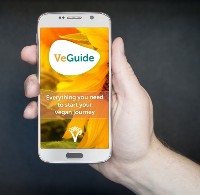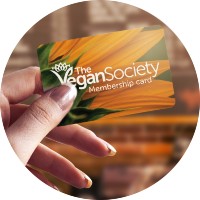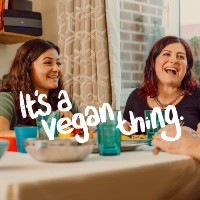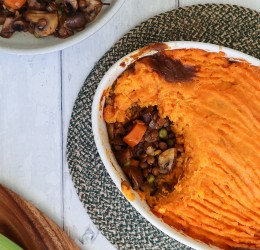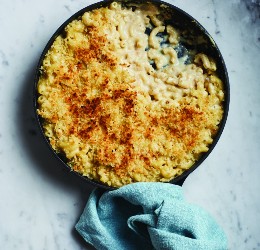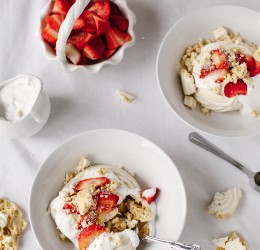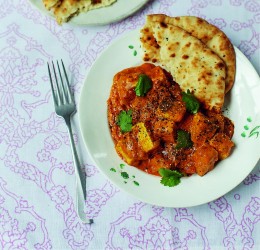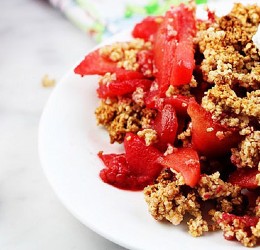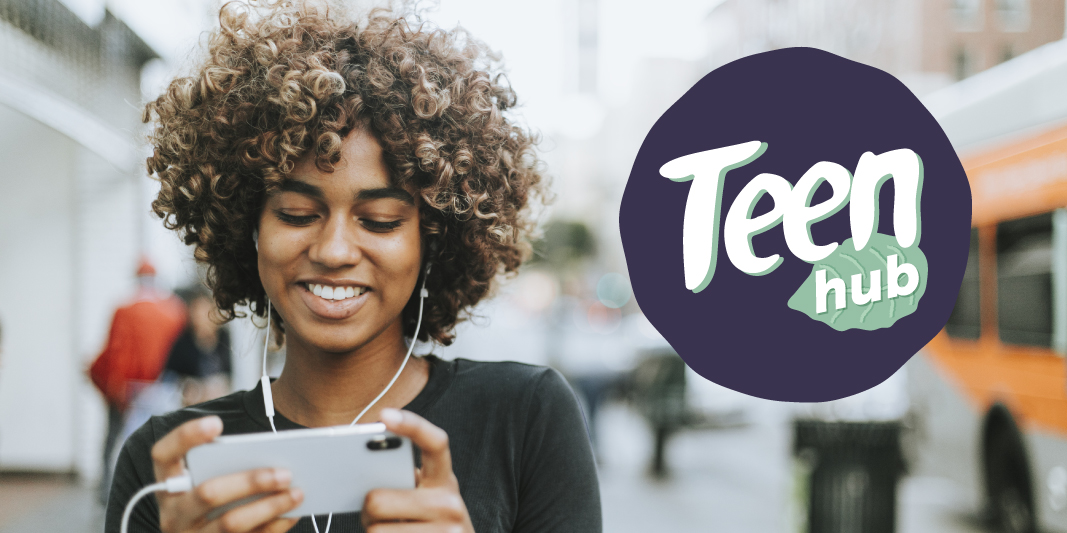
Welcome to the Teen Hub
Your guide to make vegan living as easy, fun and delicious as possible. Whether you’re interested in animal rights, protecting the planet or improving your health and wellbeing, here you can find everything you need to thrive as a vegan. You can read the stories of some inspiring young vegans, find delicious recipes and have all your questions answered, as well as sharing your own tips and advice.
Why vegan
Veganism is one of the fastest growing lifestyle movements, and young people are helping to drive it forwards .
Whether you’re an animal lover, a passionate environmentalist or you’re interested in plant-based nutrition – there are so many reasons to explore vegan living. Be part of the generation to question our use of other animals, and to do things differently. We’re here to help!
Nutrition sorted
Did you know that you can get all the nutrients you need from a vegan diet, no matter your age or level of physical activity? That’s the view of the British Dietetic Association, who are the registered experts.
Paying attention to our nutrition is something that everyone can benefit from, whether they are vegan or not. Take a look at our information for vegans aged 11-18 and our wider nutritional resources.
Plant-based teens share their stories
The process of going vegan is different for everyone. For some it’s an overnight switch, and for others it’s a much longer journey. The most important thing is to give yourself the best shot at making it a change for life – so if that means taking it slow, you do you. Read some inspirational stories from some vegan teens below – and if you would like to share your own story then please email us. We would love to include you!
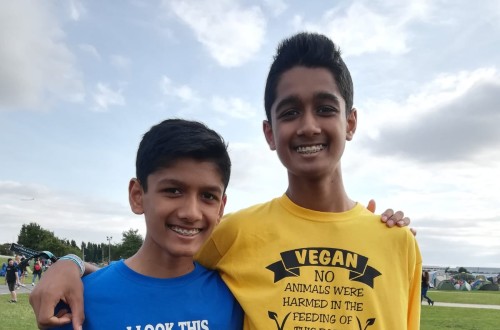
Dylan and Liam's story
Dylan (aged 17): My brother Liam and I have been vegetarian since birth. One day when I was eating eggs I started to wonder if animals were harmed in the egg industry, and which other animals were harmed for food I ate. I set a date to go fully vegan: 1 January 2017. Veganism to me means avoiding cruelty towards animals as far as possible. It means doing my part to save innocent lives.
I love the large variety of vegan food there is. I enjoy cooking and some of my favourite dishes to make are Singapore Noodles, leek and potato soup, guacamole with nachos and homemade pesto pasta.
I follow Earthling Ed and Joey Carbstrong on YouTube and Instagram – they both make great videos about veganism.
Liam (aged 15): I went vegan after my brother did. I realised that all cruel foods have vegan substitutes, and I didn’t need to drink cow’s milk. Cow’s milk is for cows!
Since going vegan I’m still healthy and I don’t need to think about eating immoral foods. My favourite foods include Thai green curry and tofu in black bean sauce.
My friends understand that I am vegan, and they still haven’t won a debate against me yet! Both Dylan and I have done speeches at school about veganism.
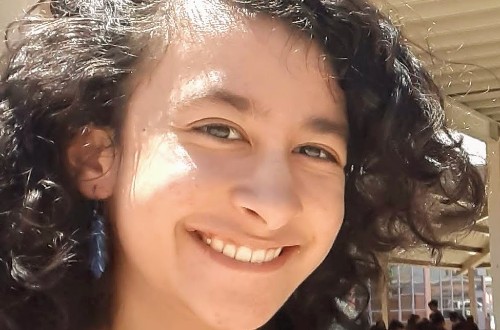
Devika's story
My parents and I decided to go vegan together. This was after watching the documentary Vegucated, which brought to light the issues of animal cruelty in the food industry. I don’t want to eat anything that comes from a sentient being who was treated poorly and exploited. I’ve also done some research on how being vegan has a positive environmental impact and health benefits.
I love trying new recipes and being experimental with what I eat. I like to go to vegan shops and restaurants and try new food.
Art is a passion of mine. I mainly do coloured pencil portraits and landscape paintings, and I’m figuring out how to do digital art. Writing and reading are also hobbies of mine. But most of all, I love to plop down on the couch and watch Netflix shows.
I don’t follow many vegan influencers, but Ashley Wicka and TheChicNatural make some great videos on YouTube. I also watch Ruby Granger and Unjaded Jade on YouTube. They are all vegan but make videos about lots of different topics.
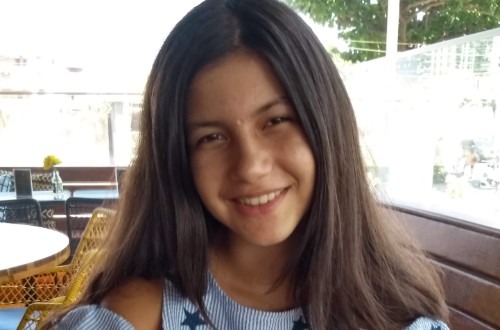
Luara's story
I went vegan because I love animals and I believe that they are not ours to exploit in any way. After all, they should be free to live their lives happily. I am also concerned about the environment and know that veganism can help to combat climate change, species extinction and deforestation.
Most of my friends think that it’s really cool that I’m vegan. They really want to be vegan too but think that they couldn’t ditch meat, dairy and other animal products.
My mom went vegan at the same time as me for the same reason – the animals. My aunts, cousins and uncles haven’t changed their minds yet, but they don’t interfere with my opinions.

Sarah's story
During Christmas 2019 I began watching YouTube videos about why people go vegan. I was shocked to discover the environmental costs of the meat and dairy industries, as well as the horrific ways in which animals are treated.
Before actually going vegan I educated myself about exactly why I wanted to make this change. I bought the book How to Go Vegan by BOSH, which was very informative. I also looked into how to get all of the nutrients I need on a vegan diet and realised that, alongside the VEG 1 multivitamin, I could do it easily.
My parents didn’t immediately agree to me going vegan, so over a few months I tried to veganise as many snacks and meals as possible, while pointing out vegan products in supermarkets and ordering vegan meals at restaurants to show them that it really isn’t that hard. I also began to substitute my shower products and clothing to vegan versions. My parents then agreed that I could be vegan, and it’s one of the best decisions I’ve ever made.
My favourite Instagram influencers are probably @veganlovinglife and @vganzoe.
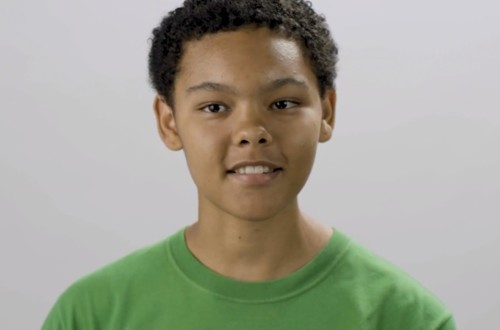
Theo's story
My vegan journey started around two years ago. I went pescatarian, then vegetarian, then cut out dairy. I slowly realised that I couldn’t keep justifying these different steps. When I was pescatarian I would constantly think, “Oh, it’s just fish. They don’t think the same or feel the same – there’s no real harm happening here.”
But then I started thinking that it wasn’t right. I didn’t want to be part of any system that harms animals, because they have just the same right as us to feel good and have a good life. So then I went completely vegan.
To start with, my mum wasn’t too happy as she thought she would have to start preparing two dinners and that it would be expensive. But we realised quickly that it’s not expensive at all. Also, sometimes I cook for myself.
A couple of my sporting heroes are vegan. Colin Kaepernick stands out for me – he’s an American footballer. I find it amusing telling people that he’s vegan and seeing the shock on their faces. Defeating the myth that vegans are weak is always fun!
Featured recipes
Here are just a selection of delicious plant-based recipes. You’ll soon find that you don’t need to miss out on any of your old favourites after ditching animal products! For more inspiration, try our recipes page.
Sweet potato shepherd’s pie
A comfort food classic with a twist from the wonderful Tiff Williams of @veganattiffs
Ultimate vegan mac and cheese
Henry and Ian from BOSH! share a winning recipe to win over your friends and family.
Aquafaba meringues
Aimee from Wallflower Kitchen shows you how to use aquafaba – the water from a can of chickpeas – to whip up these treats.
Tofu tikka masala
Fearne Cotton’s hearty and filling recipe. New to tofu? This is the place to start!
Sweet potato, butterbean and chili soup
A cracking winter warmer or a light summertime lunch – this favourite works all through the year.
Apple and raspberry crumble
Gluten-free and sugar-free, this delicious dessert from the Good Food Goddess packs in so much flavour.
Lifestyle tips
Support and advice on vegan life, from living in a non-vegan home to finding your plant-based tribe.
Here are some handy hints and tips from plant-based teens to help your vegan journey go as smoothly as possible

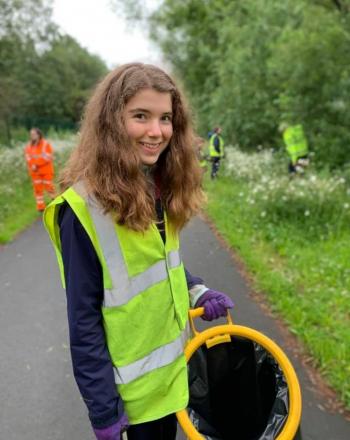
"Don’t worry about not being able to eat your favourite foods, as if you look hard enough you’ll often find vegan alternatives. It is by no means a restrictive way of life!"
- Sarah
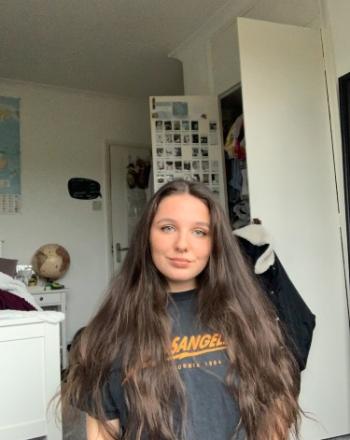
"I went vegan in February of 2018 at the age of 16. I funnily enough have grown up in a farming family. I have always loved animals, I named all of the animals on my farm and I would get to know all of their personalities! When they would suddenly disappear and there was a full chest freezer of bagged pork and lamb in my garage, I realised something was awry.
At the age of 13, I went vegetarian and taught myself to cook because otherwise I was getting a plate full of meat. My Mum wasn’t keen on the idea of being vegan but since I cook for her, she doesn’t mind. To help motivate others to embrace veganism, I started a vegan food account on Instagram called @vegan.sylvie Going vegan is one of the best decisions I’ve ever made and I would recommend it to everyone especially teenagers looking to lead a compassionate and independent lifestyle!"
- Sylvie

"I suggest going to visit a local sanctuary which looks after rescued farmed animals. This will really inspire you on your vegan journey. You can also find inspiration online by following social media accounts about veganism and animal rights, such as The Vegan Society and Earthling Ed."
- Luara

"If you can, find someone else in your life who wants to go vegan too. Whether it’s a family member or a friend, invite them along on your adventure. And then find vegan foods that you love, and enjoy being vegan!"
- Devika

"Keep reminding yourself why you don’t want to eat animals. This will help to keep you motivated. Set a date in the future of when you want to have stopped eating a particular animal product. And try lots of alternative products for, for example, milk. You might not like every kind of plant milk, but I guarantee you will find one you like."
- Dylan
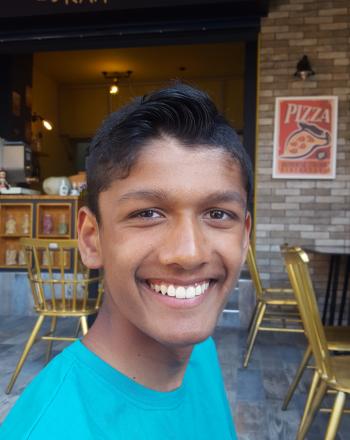
"I recommend watching lots of documentaries about all aspects of veganism – the animals, the environment and health. This will help to get you started. If you are still struggling to find your drive, you could cut one type of animal product out of your life every week until you are fully vegan."
- Liam

"I don’t really remember not being vegan. I love watching documentaries about animals and the environment, and I think the best way to look after the planet is for everyone to go vegan. My favourite subject is Art and when I grow up I want to become a writer and illustrator. "
- Maximilian
If you live in a non-vegan home, you might wonder how your vegan lifestyle can fit in with family life. Here are some tips to ensure that your vegan journey is all plain sailing.
Talk it out
First things first – everyone needs to know what veganism is, and why it is important to you. Your family will be much more likely to accommodate your decision if they understand it.
Whatever your reasons for going vegan, show that this is a decision you’ve thought about deeply, and explain your views in a calm and clear way.
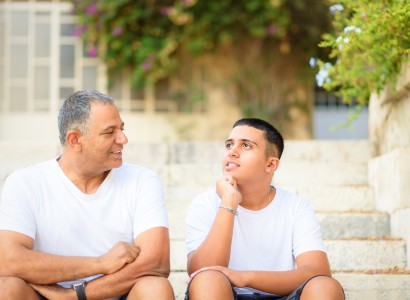

Do your research
Having some facts up your sleeve is a great way of demonstrating that you know what you’re doing. For example, if those around you are concerned about your nutrition, you can explain that you can be healthy and thrive on a vegan diet. The BDA’s statement is a good starting point – after all, they’re the experts!
Set boundaries
This change is something that your household will need to adjust to, and this may take a little time. Here are some considerations which may help to avoid tricky situations.
- Are you comfortable picking up animal products from the shop for members of your family?
- How do you feel about cooking non-vegan food for others in your household, or cleaning dishes which have had animal products on them?
- How are vegan and non-vegan foods stored at home, and are you happy with this?
Taking the time to think things through will help you to come up with solutions. For example, a designated vegan shelf in the fridge is pretty easy to arrange. And if there are jobs around the house you no longer feel comfortable doing, you can explain this to your family and suggest alternative chores.
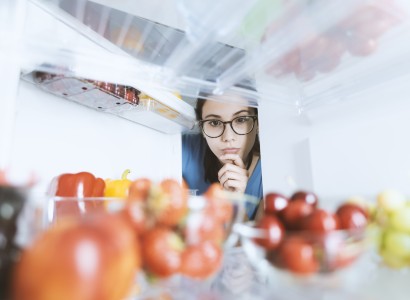

Make it easy
Your parents may be concerned about the extra time and effort needed to prepare vegan meals. Getting involved with meal planning and cooking is a great way to help out. You could suggest family favourite meals which can easily be veganised and help with the preparation. Or come up with ideas for meals in which you can easily swap in a vegan option, such as swapping plant-based sausages for meat in a Sunday roast.
You can also show your family that vegans don’t have to go without treats. Making a vegan cake for everyone to share can go a long way to bringing people on-side!
Wait it out
If your family are skeptical about you going vegan, or believe that this is a fad you will grow out of, then this can be frustrating. But hang in there – in time they will see that this is something you care about and are committed to. Remember that you’re doing a great thing. Even if your family aren’t immediately supportive of your vegan lifestyle, you are probably having a very positive impact on them without even realising.
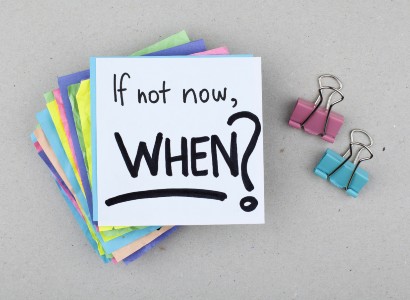
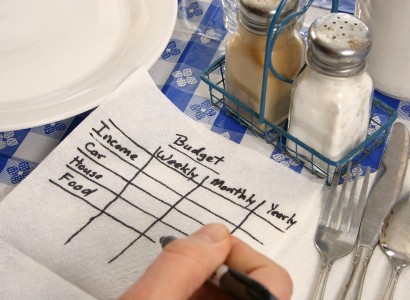
Apply for financial help
If you’re a vegan or vegetarian living in the UK, the Vegetarian Charity offers small grants to help with educational courses and the relief of poverty. They help many students, and those wishing to become students. They also give grants to help towards the purchase of items such as equipment for courses, equipment for applicants with special needs, computers, art materials, bedding, furniture, white goods etc. Parents can apply on behalf of their children. Find out more here.
As a vegan you have rights! It’s worth brushing up on what this means and how to get your voice heard.
Check your rights
Did you know that being vegan is a protected characteristic? That means that by law you have the right to have your vegan beliefs respected and wherever possible accommodated, and that you should not experience any kind of unfair treatment as a result of being vegan. This applies at school, university, in the workplace or anywhere else.
Part of The Vegan Society’s work is about protecting and furthering the rights of vegans. You can read more about this here.

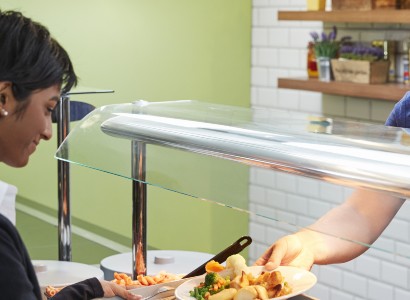
Catering
If you are at school and eligible for free lunches, your school should do everything it can to provide you with suitable vegan meals. If you are not eligible for free lunches, you can still request that your school provides a plant-based option. Our Catering for Everyone campaign is all about getting vegan food on every menu in places like schools, universities and hospitals.
Clothing
As we know, being vegan includes more than changing your diet. If your school or work uniform includes animal products such as wool or leather, then everything possible must be done to provide you with alternative vegan-friendly clothing.
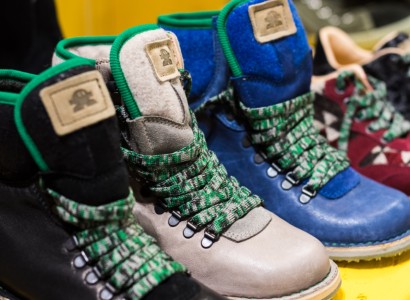

Lessons
Your school cannot enforce participation in activities which are not in line with your vegan beliefs. This might include handling or cooking animal products in Food Technology classes, or dissecting animal parts in Biology. You have a right to not take part in activities such as these, and to be given an alternative method of learning.
Being heard
If you are encountering any of these problems, it is best to identify a sympathetic person who has the power to change things for you, and to explain your position calmly and clearly. If necessary, you can get support from your parents or guardians. If the situation is not resolved, The Vegan Society has a rights service which you can contact for information and guidance.

It’s important to have people around who share your values. If you don’t know any vegans, remember that you’re not alone – it may just take a little while to find your tribe. Here are some tips to speed this along.
Talk to friends
Are any of your friends animal lovers? Or passionate environmentalists? If so, there’s a good chance that they will be interested in veganism! Chat to your friends about your reasons for exploring this lifestyle. Focusing on your own reasons for going vegan is likely to make others less defensive about their own actions.
Don’t focus on converting those who aren’t interested – you’ll have a more positive impact by doing your own thing and being an example of someone enjoying a vegan lifestyle. Your friends don’t need to all follow suit, they just need to respect your decision.


Give a talk at school
There are often opportunities at school to give a talk about a topic you find interesting. This can be a fantastic way to introduce your classmates to the idea of veganism, and to share why it is such an important movement. You may find that you’re then approached by members of your class who were interested in what you had to say.
If this doesn’t appeal, then you could also speak to your teachers and suggest veganism as a topic for discussion in any class you have about ethics or the environment. You can also invite a school speaker from Animal Aid to present to your class.
Find events
Check out our events page, and see if there are any local to you. Finding out more about your local vegan scene is a great way to make connections and feel like you’re part of a group. Taking along your friends or family members can also be a good way of showing them all that veganism has to offer.
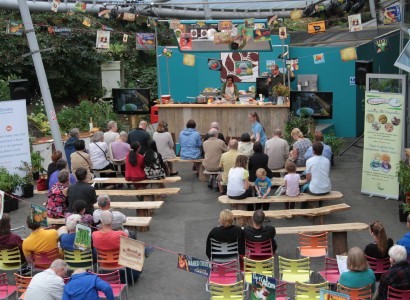

Connect online
There are so many online groups and pages where you can find people who care about similar issues, and veganism is no different. Following vegan influencers can help you to feel plugged into the social community, as well as providing a place for you to ask questions and get advice. Remember to always be safe – don’t share personal details or travel alone to meet anyone you have met online.
Volunteer
Volunteering is a fantastic way to meet like-minded people. You could get in touch with your local animal sanctuary to see if they have any opportunities to help out. There may also be animal rights groups in your area which you can get involved with.


